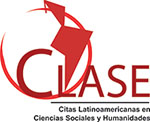Independent work as a condition for teacher's self-improvement in the educational process of additional vocational education institutions
DOI:
https://doi.org/10.23857/dc.v10i1.3768Palabras clave:
self-management, self-improvement, andragogy, motivation, systematicnessResumen
In this article, the established role for the importance of self-management and ongoing self-improvement of teachers within the teacher training system will be revealed. It conceptually defines independent work as the study, research and critical analysis activities of practice that teachers carry out autonomously. The key principles of andragogy that should guide autonomous work will be described, such as: starting from the learning needs of the participant, allowing self-management of content and methods, considering motivation and previous experience. It is also based on criteria such as systematicness, practical utility, self-regulation and self-assessment. Subsequently, an organized 7-step algorithm is explained to effectively structure teachers' independent work. Likewise, it proposes tools to develop teachers' ability for self-reflection and metacognition, such as self-control cards. It also raises the importance of linking content to the solution of real pedagogical problems that teachers face.
Citas
A Practical Guide for Medical Teachers, E-Book: A Practical Guide for ... - Google Libros. (n.d.). Retrieved February 17, 2024, from https://books.google.com.ec/books?hl=es&lr=&id=lBArEAAAQBAJ&oi=fnd&pg=PP1&dq=Independent+Learning:+A+teacher%27s+guide&ots=dlom7INvqF&sig=I2XZrHgrnKobmRMw6B54E_hyA30&redir_esc=y#v=onepage&q=Independent%20Learning%3A%20A%20teacher’s%20guide&f=false
Alam, A. (2022). Social Robots in Education for Long-Term Human-Robot Interaction?: Socially Supportive Behaviour of Robotic Tutor for Creating Robo-Tangible Learning Environment in a Guided Discovery Learning Interaction. ECS Transactions, 107(1), 12389–12403. https://doi.org/10.1149/10701.12389ECST/XML
Burgan, S. C., & Burgan, D. S. (2020). One size does not fit all: Choosing the right project approach. https://www.pmi.org/learning/library/choosing-right-project-approach-9346
Cheng, J., Han, W., Zhou, Q., & Wang, S. (2024). Handbook of Teaching Competency Development in Higher Education. Springer, 1(1), 128–133. https://doi.org/https://doi.org/10.1007/978-981-99-6273-0
Filgona, J., Sakiyo, J., Gwany, D. M., & Okoronka, A. U. (2020). Motivation in Learning. Asian Journal of Education and Social Studies, 16–37. https://doi.org/10.9734/AJESS/2020/V10I430273
Ionu? Mihai, O. (2021). SELF-EDUCATION AND LIFELONG LEARNING. IJASOS-International E-Journal of Advances in Social Sciences, VII. https://doi.org/10.2307/1494774
Jalil, A., Tohara, T., Shuhidan, S. M., Diana, F., Bahry, S., & Norazmi Bin Nordin, M. (2021). Exploring Digital Literacy Strategies for Students with Special Educational Needs in the Digital Age. Turkish Journal of Computer and Mathematics Education (TURCOMAT), 12(9), 3345–3358. https://doi.org/10.17762/TURCOMAT.V12I9.5741
Machynska, N., & Boiko, H. (2020). ANDRAGOGY-THE SCIENCE OF ADULT EDUCATION: THEORETICAL ASPECTS. Journal of Innovation in Psychology, Education and Didactics, 24(1), 25–34.
Nation, P. (2022). Teaching and learning vocabulary. Handbook of Practical Second Language Teaching and Learning, 397–408. https://doi.org/10.4324/9781003106609-33
ORGANIZATION OF PRACTICAL AND LABORATORY ACTIVITIES IN THE EDUCATIONAL PROCESS. (n.d.). Retrieved February 17, 2024, from www.idpublications.org
Unesco. (2023). Technology in education. https://gem-report-2023.unesco.org/technology-in-education/
Urbinati, A., Chiaroni, D., Chiesa, V., & Frattini, F. (2020). The role of digital technologies in open innovation processes: an exploratory multiple case study analysis. R&D Management, 50(1), 136–160. https://doi.org/10.1111/RADM.12313
Van, H. (2020). IDENTIFY METHODS OF TEACHING AND LEARNING TO CREATE INTEREST, SELF-STUDY, AND CREATIVITY OF STUDENTS. Humanities & Social Sciences Reviews, 8(3), 646–656. https://doi.org/10.18510/hssr.2020.8369
Žydži?nait?, V., & Daug?la, M. (2020). Teacher’s professional self-awareness within the interactions with students in higher education: Temporality and relationality. Acta Paedagogica Vilnensia, 45, 160–174. https://doi.org/10.15388/ACTPAED.45.10
Descargas
Publicado
Cómo citar
Número
Sección
Licencia
Derechos de autor 2024 José Fernando Toaquiza Chancusig, Olga Samanda Abedrabbo Ramos

Esta obra está bajo una licencia internacional Creative Commons Atribución 4.0.
Authors retain copyright and guarantee the Journal the right to be the first publication of the work. These are covered by a Creative Commons (CC BY-NC-ND 4.0) license that allows others to share the work with an acknowledgment of the work authorship and the initial publication in this journal.






